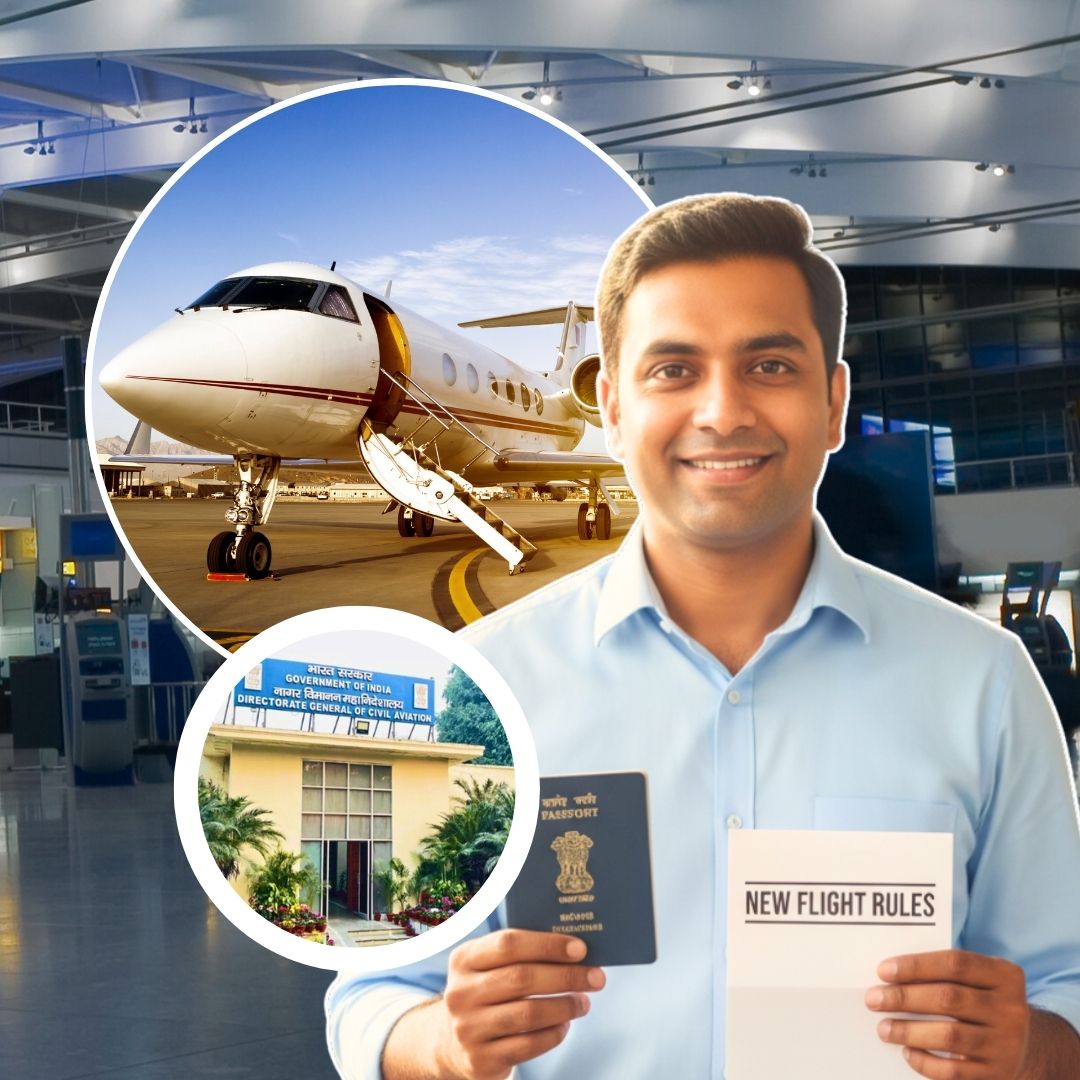The Directorate General of Civil Aviation (DGCA) in India has proposed new regulations introducing a 48-hour “look-in-option” for airline passengers to cancel, refund, or reschedule their flight tickets without additional charges, other than fare difference.
This proposal, open for public feedback until November 30, is designed to enhance passenger flexibility soon after ticket purchase. Refunds must be processed within 21 working days, with airlines responsible even when tickets are booked through agents.
The proposal excludes flights departing within five days domestically and fifteen days internationally and aims to balance consumer rights with operational demands.
DGCA’s New Refund Rules
The new DGCA draft regulation arises amid growing passenger dissatisfaction over delays in refunds, forced acceptance of credit shells, and complicated cancellation policies. Complaints prompted the aviation regulator to review current rules and introduce passenger-centric reforms within the Civil Aviation Requirement (CAR) framework.
The “look-in-option” allows flyers to reassess their travel plans within 48 hours, alleviating pressure from rushed decisions. Such reforms align Indian aviation standards more closely with global consumer rights practices and cater to market demands for greater transparency and ease.
Details of the Proposal and Its Impact on Flyers
Passengers booking directly on airline websites will have a 48-hour window to cancel or amend tickets free of charge, save for any fare differences on changed flights. A key feature ensures no additional fees for correcting name spelling errors within 24 hours.
Refund responsibilities now squarely rest on airlines to disburse payments within 21 working days whether purchased directly or via travel agents, improving accountability and reducing customer wait times. However, restrictions apply to short-notice bookings (less than five days domestic, fifteen days international), preserving airlines’ operational flexibility under urgent demand.
Here are the new proposed DGCA rules and changes for flight ticket refunds, cancellations, and rescheduling:
- 48-Hour Look-In Window: Passengers can cancel, reschedule, or refund their flight tickets within 48 hours of booking without paying extra charges (except fare difference on changed flights).
- Refund Timeline: Airlines are required to process refunds within 21 working days, even if the ticket was booked through a travel agent or third party.
- No Forced Credit Shells: Passengers must be given the option to receive a direct refund instead of being forced to accept credit shells or wallet balances.
- Exclusions Apply:
- Domestic flights departing within five days of booking are excluded.
- International flights departing within fifteen days of booking are excluded.
This aims to balance passenger flexibility with airline operational needs.
- Free Name Corrections: Airlines cannot charge extra for correcting name spellings on tickets if errors are reported within 24 hours of booking.
- Responsibility on Airlines: For bookings made through agents or portals, airlines are responsible for guaranteeing refunds and timely processing.
- Public Feedback Invited: The DGCA has opened the proposal for stakeholder and public comments until November 30, 2025, before finalising the rules.
- Goal: These changes are designed to provide greater flexibility, transparency, fairness, and an improved passenger experience in line with global best practices.
Public Reaction and Expectations
Common travellers welcome the DGCA’s initiative as a significant step forward in passenger rights and convenience, likening it to airline policies in more mature markets globally. Many appreciate the potential reduction in refund-related stress and clearer booking protections, particularly amid fluctuating travel plans post-pandemic.
“Good news for all air passengers,” wrote a user on X welcoming the new DCGA rules.
The Logical Indian’s Perspective
This DGCA move embodies a positive stride towards consumer-first air travel reforms, promoting fairness and clarity. Nonetheless, successful adoption demands vigilant regulation, transparent communication, and technological preparedness across airlines and agents.
Equally vital is empowering passengers with accessible, accurate information. Such reforms can rebuild traveller confidence, a critical asset for the aviation sector’s growth and public trust.
News in Q&A
- What new rules has DGCA proposed regarding flight ticket cancellations and refunds?
The Directorate General of Civil Aviation (DGCA) in India proposed a 48-hour “look-in-option” allowing passengers to cancel, reschedule, or refund tickets within 48 hours of booking without additional charges except fare differences. Airlines must refund payments within 21 working days, including bookings made via agents. This aims to increase passenger rights and booking flexibility. - When and where will these new policies apply, and are there exceptions?
The proposal applies nationwide to Indian domestic and international flights. However, it excludes domestic flights departing within five days and international flights leaving within fifteen days from booking, balancing operational demands with consumer convenience. - Why did DGCA introduce these changes now?
The DGCA responded to mounting passenger complaints about delayed refunds, forced credit shells, and opaque airline cancellation policies. The new rules intend to simplify the refund process, enhance transparency, and align India’s aviation norms with international practices. - How will these changes affect passengers who book through travel agents?
For tickets booked via travel agencies or portals, airlines will be directly responsible for ensuring refund disbursement within the stipulated 21-day timeline. This removes ambiguity about liability and aims for quicker passenger reimbursement. - What feedback and reactions have emerged from the public and industry?
Passengers have largely welcomed the proposed 48-hour free cancellation window as a practical relief, especially amid uncertain travel plans. Industry experts and consumer rights advocates are monitoring the public feedback phase ending November 30 to fine-tune these reforms, balancing airline and passenger interests.













